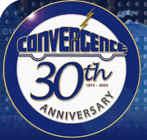Bosch Chairman Addresses Key Elements for Future Success of Automotive Electronics at Convergence 2004
 |
Franz Fehrenbach keynotes conference, offers insight on improving quality, mastering complexity
DETROIT, Oct. 19 -- In his Convergence 2004 keynote address this morning, Franz Fehrenbach, chairman of the board of management, Robert Bosch GmbH, identified three key, interconnected factors important to the future success of automotive electronics: complexity, quality, and common standards.
"These issues are interrelated and impact one another. If our industry does not commit to mastering complexity, we will never achieve common standards or improve quality," said Fehrenbach. "At the same time, without developing common standards, we will never master complexity in the systems we deliver to the market."
These factors are particularly important given the future influx of technology options that will increase a vehicle's electronics. By 2010, approximately 40 percent of a vehicle's value will be derived from electronic content. Thirty years ago, when the Convergence show began, less than nine percent of a vehicle's value resulted from electronics.
Emerging technologies that will influence this growing electronic content include adaptive cruise control (ACC), occupant sensing, lane departure warning, Dynamic Navigation and parking assistance systems, to name a few.
In addition to innovation development, quality continues to be a factor in the advancement of the automobile. Based on J.D. Power and McKinsey data, there is a direct correlation between the number of electronics functions and the number of defects per vehicle.
"If the value of electronics content per vehicle doubles in the next five to 10 years as predicted, it isn't hard to imagine what that means for the number of defects if this trend line holds true," said Fehrenbach.
In an effort to assist manufacturers in achieving high quality through complexity reduction, Bosch and other industry leaders formed AUTOSAR in September 2003. Focused on the Automotive Open System Architecture, the goal of the AUTOSAR initiative is to define a worldwide industry standard for basic functions and interfaces in every automotive electronic control unit. It also aims to simplify and encourage the use of standard software packages to reduce the probability of software quality deficiencies as well as costs.
"AUTOSAR is an excellent example of embracing pre-competitive standards related to the electronics infrastructure within a vehicle," said Fehrenbach. "The initiative works toward networking systems and sub-systems and creating a common technology interface within and to the vehicle."
The first vehicles designed according to the AUTOSAR rules are expected to be on the market in 2008. An AUTOSAR representative will be available in room D3-26 of Cobo Center during Convergence for those interested in learning more.
One of the largest North American automotive suppliers, Bosch develops, manufactures and supplies precision components and systems -- including body electronics, chassis and powertrain -- for every major vehicle manufacturer worldwide.
In North America, the Bosch Group manufactures and markets automotive original equipment and aftermarket products, industrial automation and mobile products, power tools and accessories, security technology, packaging equipment and household appliances. Bosch employs more than 23,000 associates in facilities across North America and reported sales of $6.6 billion in 2003. For more information, visit http://www.boschusa.com/ .
The Bosch Group, a German-based company, is active globally in the business sectors Automotive Technology, Industrial Technology, as well as Consumer Goods and Building Technology. In 2003, worldwide sales were EUR 36.4 billion. The Bosch Group operates 258 subsidiaries, of which 215 are located outside Germany, and has a total of 232,000 employees worldwide.


